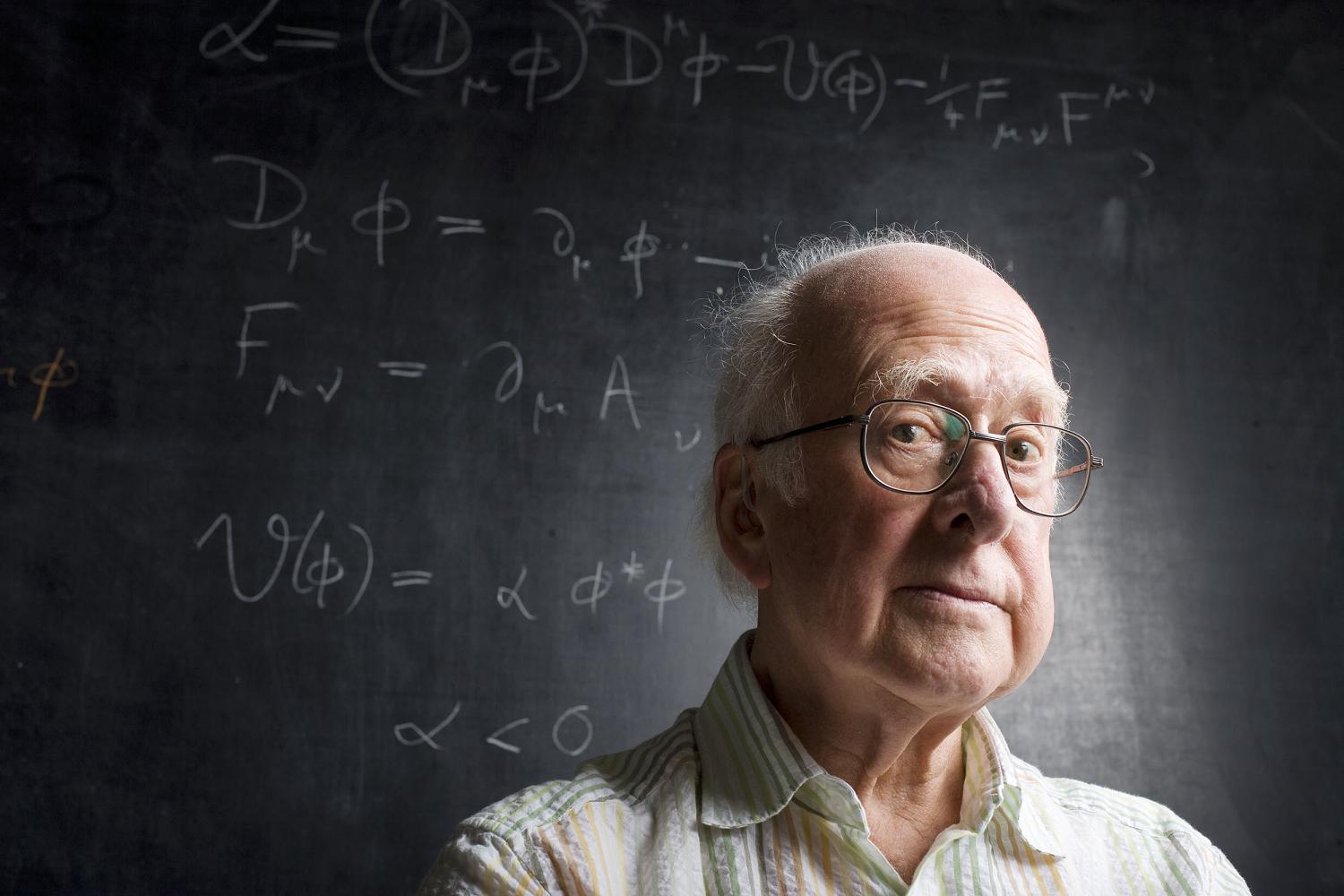
Peter Higgs is a renowned physicist who gained international recognition for his groundbreaking work on the Higgs boson, a particle responsible for giving other particles their mass. Born on May 29, 1929, in Newcastle upon Tyne, England, Higgs dedicated his career to unraveling the mysteries of the universe.
In this article, we will delve into 12 intriguing facts about Peter Higgs, shedding light on his life, contributions to science, and the impact of his discoveries. From his humble beginnings to his Nobel Prize-winning breakthrough, Higgs’s journey in the field of physics is nothing short of remarkable.
Key Takeaways:
- Peter Higgs, a renowned physicist, proposed the existence of the Higgs boson particle, earning global recognition and the Nobel Prize in Physics in 2013.
- Despite skepticism, Higgs’ humble demeanor and groundbreaking work at the University of Edinburgh have paved the way for further scientific exploration in particle physics.
Peter Higgs is a renowned physicist.
Peter Higgs, born on May 29, 1929, is a highly esteemed physicist hailing from Newcastle upon Tyne, England. His groundbreaking work in the field of particle physics has earned him global recognition and acclaim.
Higgs proposed the existence of the Higgs boson particle.
In 1964, Peter Higgs put forward the Higgs mechanism, which theorized the existence of the Higgs boson particle. This discovery had a significant impact on understanding the fundamental nature of matter and the origin of mass in the universe.
The Higgs boson is often referred to as the “God particle.”
The Higgs boson gained widespread attention and fascination among both scientists and the general public. Its nickname, the “God particle,” was coined due to the particle’s vital role in explaining the origin of mass in the universe.
Higgs received the Nobel Prize in Physics in 2013.
In recognition of his pioneering work on the Higgs mechanism, Peter Higgs was awarded the Nobel Prize in Physics in He shared this prestigious honor with Belgian physicist François Englert, who independently proposed a similar mechanism.
He initially faced skepticism regarding his theory.
When Peter Higgs first presented his theory on the Higgs mechanism in the 1960s, it was met with skepticism and doubts from the scientific community. However, subsequent experimental evidence and the discovery of the Higgs boson confirmed the validity of his groundbreaking ideas.
Higgs spent most of his career at the University of Edinburgh.
Peter Higgs was a dedicated professor at the University of Edinburgh, where he conducted his research and taught physics for several decades. His contributions to the field and teaching legacy have made him a revered figure in academia.
The Higgs boson discovery was made at the Large Hadron Collider.
The long-awaited discovery of the Higgs boson particle was made possible through the efforts of scientists working at the Large Hadron Collider (LHC) in Geneva, Switzerland. The LHC is the world’s largest and most powerful particle accelerator.
Higgs is a Fellow of the Royal Society.
In recognition of his exceptional scientific achievements, Peter Higgs was elected as a Fellow of the Royal Society in This esteemed fellowship is a testament to his significant contributions to the field of physics.
Higgs has received numerous other prestigious awards and honors.
In addition to the Nobel Prize, Peter Higgs has been the recipient of various other esteemed awards, including the Copley Medal and the High Energy and Particle Physics Prize. These accolades further highlight his remarkable contributions to the scientific community.
Higgs retired from academia in 1996.
After a long and fruitful career, Peter Higgs retired from his academic position in However, his legacy and impact on the field of physics continue to inspire and influence generations of scientists.
He is famously known for his humility.
Peter Higgs is widely admired for his down-to-earth and humble demeanor. Despite his exceptional achievements, he remains modest and reserved, focusing on the importance of scientific collaboration and the pursuit of knowledge.
Higgs’ work has paved the way for further scientific exploration.
The discoveries and theories put forth by Peter Higgs have opened up new avenues for scientific exploration and research. His groundbreaking work continues to inspire further advancements in particle physics and the understanding of the universe.
Conclusion
In conclusion, Peter Higgs is a remarkable scientist whose contributions to our understanding of the universe are truly unparalleled. His groundbreaking work on the Higgs boson and the theory of electroweak symmetry breaking has revolutionized the field of particle physics and earned him the Nobel Prize in Physics in 2013. Higgs’ journey from an unknown researcher to a prominent figure in the scientific community is truly inspirational. His dedication, perseverance, and brilliant mind have not only deepened our understanding of the fundamental forces that shape the universe, but also inspired countless scientists to follow in his footsteps. As we continue to explore the mysteries of the universe, we owe a great debt to Peter Higgs and his extraordinary discoveries.
FAQs
1. Who is Peter Higgs?
Peter Higgs is a British theoretical physicist who is best known for proposing the existence of the Higgs boson, a fundamental particle that plays a crucial role in the theory of how particles acquire mass.
2. What is the Higgs boson?
The Higgs boson is a subatomic particle that is associated with the Higgs field, which permeates throughout the universe. It is responsible for giving other particles mass and is a cornerstone of the Standard Model of particle physics.
3. What is electroweak symmetry breaking?
Electroweak symmetry breaking is a theoretical concept that explains how the electromagnetic and weak nuclear forces, which appear different at high energies, become unified and indistinguishable at low energies. Peter Higgs, along with other scientists, developed a mechanism whereby the particles acquire mass through interactions with the Higgs boson.
4. How did Peter Higgs discover the Higgs boson?
Peter Higgs proposed the existence of the Higgs boson in 1964 as part of his research on the mechanism of electroweak symmetry breaking. It took several decades and the construction of the Large Hadron Collider (LHC) for experimental physicists to finally confirm the existence of the Higgs boson in 2012.
5. What impact did Peter Higgs’ work have on the scientific community?
Peter Higgs’ work on the Higgs boson and electroweak symmetry breaking revolutionized the field of particle physics. His discoveries not only confirmed a key aspect of the Standard Model but also provided valuable insights into the nature of the universe, shaping our understanding of the fundamental forces and particles that govern it.
Peter Higgs' groundbreaking work has inspired countless scientists and sparked public fascination. Delving deeper into his life story reveals even more surprising facts that showcase his brilliance and dedication. For those curious about the elusive Higgs boson particle, a wealth of unbelievable insights awaits. Higgs' journey from humble beginnings to becoming a Nobel laureate is a testament to the power of perseverance and intellectual curiosity. His legacy continues to shape our understanding of the universe, inviting us to explore the frontiers of physics and unravel the mysteries that lie ahead.
Was this page helpful?
Our commitment to delivering trustworthy and engaging content is at the heart of what we do. Each fact on our site is contributed by real users like you, bringing a wealth of diverse insights and information. To ensure the highest standards of accuracy and reliability, our dedicated editors meticulously review each submission. This process guarantees that the facts we share are not only fascinating but also credible. Trust in our commitment to quality and authenticity as you explore and learn with us.


